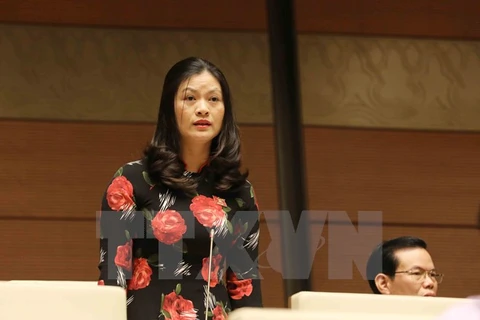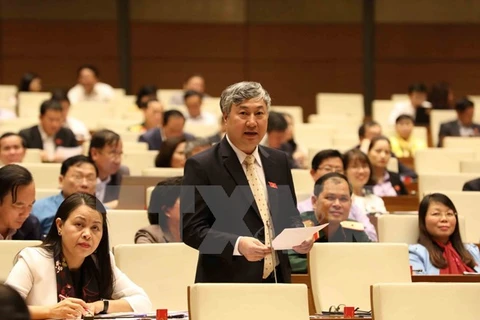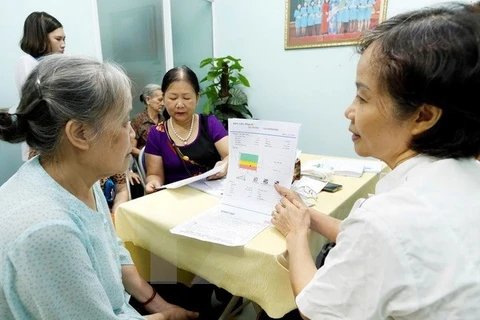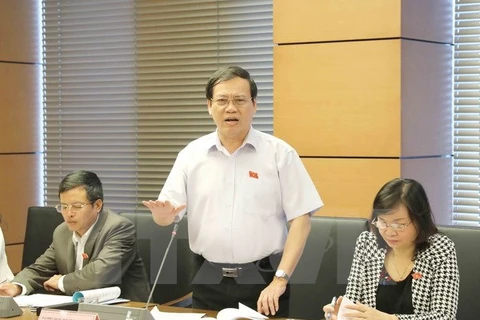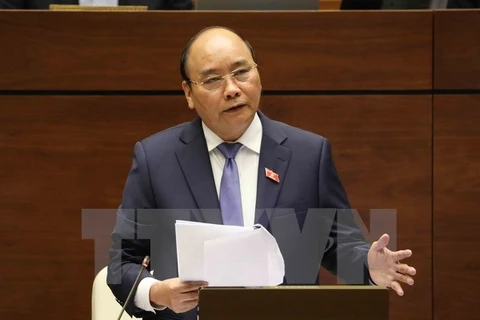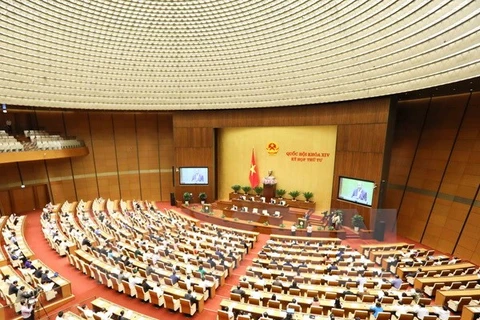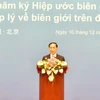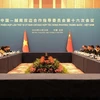Hanoi (VNA) – Lawmakers gave different ideas on specific contents needed adjusting in the draft revised Anti-Corruption Law, especially the expansion of its coverage to the private sector, subjects to asset declaration and the reclamation of corrupted property at the November 21 sitting as part of the 14th National Assembly’s ongoing fourth session.
According to Nguyen Thi Thuy, representative from Bac Kan province, there is a lack of effective policies for tracking asset origin and the prompt settlement of corrupted assets. She proposed further discussing the issue.
Many deputies took note of achievements in combating corruption over the past decade since the law was introduced, but also pointed out complicated developments and shortcomings in the work.
According to the draft law, non-State organisations and enterprises will have to abide by a number of regulations on anti-corruption, such as transparency in operations, responsibilities of their head and clarity in income.
The expansion is part of the Government’s effort to realise the Politburo’s conclusion on gradually extending anti-corruption activities to the private sector.
However, Luu Binh Nhuong from Ben Tre province held that the expansion is not feasible, and disagreed to expand the law’s coverage to the private sector.
Sharing Nhuong’s opinion, Nguyen Mai Bo from An Giang province said that the draft law should focus on the appointment of officials.
Meanwhile, some legislators supported the expansion of the draft law’s coverage, asserting that this is an outstanding feature of the law, which is suitable to the Party’s policies and international conventions, showing a mindset change in protecting the interest of the community.
Hoang Quang Ham from Phu Tho province held that it is necessary to keep a closer watch on companies, credit institutions, funds and social organistions, as he noted that corruption in these units is often serious and largely affects the community.
Due to differences in the lawmakers’ ideas, debate on the bill will be continued in three sessions.-VNA

